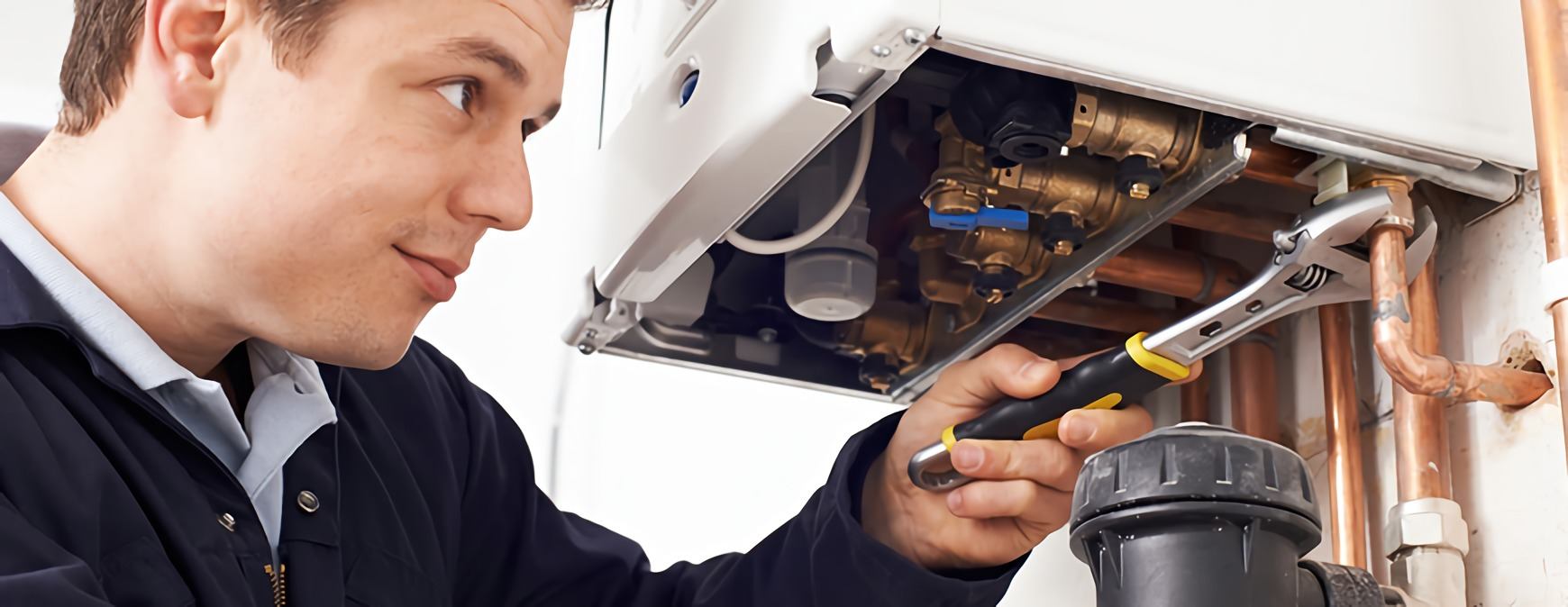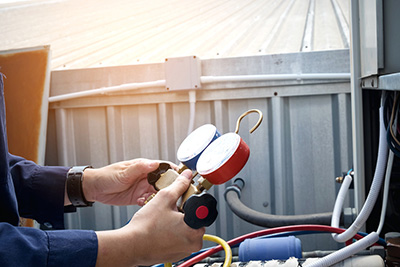
What Does a Boiler Operator Do?
As a boiler operator, you’d be in charge of operating, inspecting, and maintaining boilers. 1
Definition: A boiler is a large metal tank that heats water or turns water into steam. That hot water or steam is sent to radiators to heat a building. 2 3
Boiler Operator Jobs: Factories, government and commercial buildings, schools, and hospitals are some of the places where boiler operator work.
Get Started on the Path to a New Career
Fill out our form to learn how we can help you change your life.
What Is Boiler Maintenance?

Generally, boiler maintenance can be broken down into three primary tasks:
- Inspection: Boiler operators use gauges, monitor meters, and computerized controls to inspect equipment. They make sure it’s operating correctly and safely.
- Service: As a boiler operator, you would also service the equipment. This means replacing filters, cleaning off corrosion or soot, and lubricating moving parts.
- Repair and Replacement: During maintenance, you’ll troubleshoot problems and make repairs. Sometimes you’ll have to replace parts. Faulty valves, gaskets, or bearings are some of the parts that are commonly replaced.
Boiler maintenance focuses on three parts of the system:
- Boiler
- Controls and pumps
- Radiators, pipes, and convectors 4
Why Do Boiler Maintenance?
It’s important to do boiler maintenance at least once a year. Boiler maintenance has three major benefits:
- Improved Efficiency: Combustion byproducts can build up on the heat exchanger. This can create a blockage of airflow that interferes with heat transfer which decreases efficiency. It’s possible that using the latest HVAC technology you can recommend smart retrofits or find tools that make maintenance more efficient.
- Longer Equipment Life Span: While working on the equipment, you could fix problems that could ultimately shorten its life span. The system might be leaking water. The controls could be working incorrectly. There could be issues with the vents or pipes. Regular maintenance allows you to make repairs to keep equipment working longer.
- Safety: Carbon monoxide leaks are serious threats to customer safety. Thankfully, when you perform boiler maintenance, you can catch leaks before they do major harm. Yellow flames on gas burners, corrosion, overheating, and black soot on oil boilers are all signs that the fuel is not burning correctly, and you could have a safety hazard on your hands. 5
Rewarding Work
As a boiler operator, you could play an important role. Getting training in Mechanical maintenance engineering can be a good start. As the Bureau Labor Statistics points out, this line of work is becoming more complex, so vocational training may be an advantage when trying to enter the field. 6
Additional Sources
1 – https://www.bls.gov/ooh/production/stationary-engineers-and-boiler-operators.htm#tab-2
2 – https://www.merriam-webster.com/dictionary/boiler
3 – https://energy.gov/energysaver/furnaces-and-boilers
4 – Title: Fundamentals of HVAC; Authors: Carter Stanfield and David Skaves; Air-Conditioning, Heating, and Refrigeration Institute; Second Edition; Textbook page 1417
5 – http://www.achrnews.com/articles/133649-optimizing-boiler-performance
6 – https://www.bls.gov/ooh/production/stationary-engineers-and-boiler-operators.htm#tab-4
This blog has been labeled as archived as it may no longer contain the most up-to-date data. For a list of all current blog posts, please visit our blog homepage at https://www.rsi.edu/blog/

